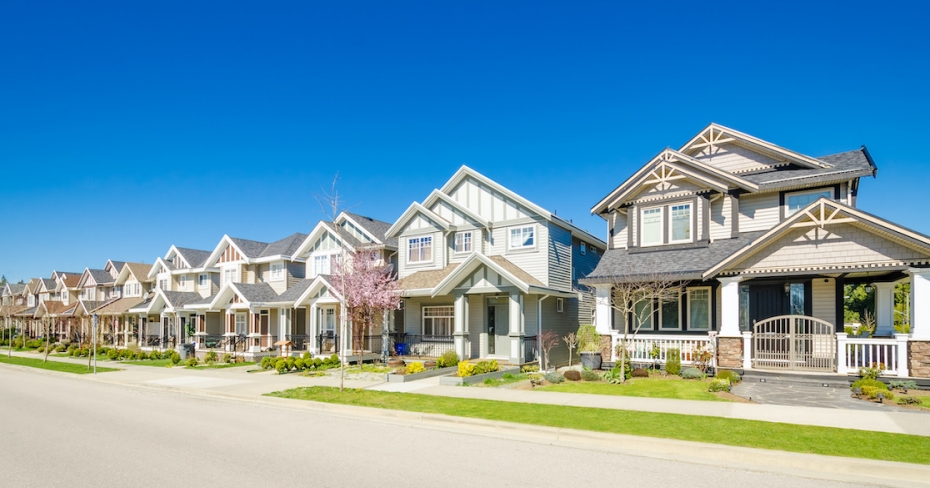Ontario cities with the highest and lowest property tax rates right now in 2021
By: Zandile Chiwanza on July 23, 2021
This article has been updated from a previous version.*
Thanks to COVID-19, aspiring and existing homeowners are searching for housing outside of big cities in record numbers. Whether you’ve been priced out, yearning for more space (or both), a significant number of Ontario residents are embracing the idea of relocating to smaller, more affordable areas as a way to cut costs.
Before you pack up your things and sign that contract, though, you’ve got to think beyond your monthly mortgage payments — especially if you plan to own a home in a different municipality from the one you're currently in. The actual cost of owning a home includes a slew of other expenses, such as utilities, home insurance, and the commonly overlooked property tax.
Depending on where you live and the type of property you own, your annual property tax costs could be thousands of dollars higher than those in neighbouring communities. Regardless of the sort of residential property you own in Ontario, be it a fully detached home, a semi-detached home, or a condo, you will have to pay property taxes every year.
How is property tax calculated?
Your local government collects property tax as a means to support public education, fire departments, local police enforcement, community centres and libraries.
The factors used to determine a city’s property tax rate include:
- The assessed value of your home. (Keep in mind that the market value of your property used in the calculation is different from the price you paid for your home.)
- The education tax rate (which is set by the province)
- The residential tax rate set by the municipality
Every four years, the Municipal Assessment Corporation (MPAC) evaluates properties across Ontario and submits assessed values for each one. But because of COVID-19, province-wide property assessments were postponed in 2020.
In order to find out the exact amount of property tax you'll have to pay on your home, it's best to consult your local assessor or call your city's tax office. Just a heads up: not every municipality's website has a calculator open to the public; in some cities, you need an address or roll number — a unique 15-digit number MPAC assigns to each property it evaluates — to get the amount.
You can pay your property tax in instalments or roll it into your mortgage payments, depending on where you live and the lender you're working with. Depending on the municipality, property property taxes are paid quarterly, semi-annually, or annually.
Property tax might not be at the forefront of most homebuyers' minds, but it should be included in an overall housing budget. That’s why we set out to find the most and least expensive cities for residential property tax in the province.
There are 51 cities in Ontario. We went to each one’s website to see if the property tax rates for 2021 were released yet. Unfortunately, not all cities had updated data for 2021. We were able to obtain property tax information for only 32 Ontario cities, so this is of course not an exhaustive or completely representative list. That said, it gives you an idea of where you’ll pay the most and least for residential property tax in the province right now.
Ontario's five most expensive cities for property tax right now in 2021
Cities with lower-valued homes and smaller populations tend to boast higher tax rates because there are fewer taxpayers overall who are able to contribute. The opposite tends to be true of cities with higher-valued homes and larger populations; they generally have more flexibility when it comes to setting the property tax rate.
However, this doesn’t guarantee that a smaller city will always have a more expensive tax rate. According to MPAC, if your municipality needs additional funds, your property taxes may rise.
Based on the information we have right now, the following are Ontario's five most costly cities for residential property taxes in 2021:
- Belleville (1.665845%)
- North Bay (1.568182%)
- St. Thomas (1.55319%)
- Sarnia (1.533293%)
- Peterborough (1.448245%)
As you can see, many of Ontario's smaller cities boasts some of the highest property taxes in the province.
Using North Bay as an example, let's assume a home assessed at a value of $500,000. According to the city's calculator, the owners would be responsible for $7,840.91 in annual property tax.
Ontario's five least expensive cities for property tax right now in 2021
Based on the information we have right now, here are Ontario's five least expensive cities for residential property taxes so far in 2021:
- Vaughan (0.669976%)
- Burlington (0.779583%)
- Kitchener (1.106139%)
- Clarence-Rockland (1.256262%)
- Thorold (1.418692%)
For comparison, a home in Clarence-Rockland assessed at $500,000 would produce $6,487.56 in annual property tax, according to the city's calculator.
If you only factor in your mortgage payment when buying a home, you could be in for an unpleasant surprise if you don’t factor in property taxes, too. If you’re still considering leaving a big city for a smaller one, don’t forget to account for this often glossed-over cost of homeownership when coming up with your budget.
Just remember that this list is based on the information we have available right now. These rankings will almost certainly shift as tax rates for 2021 continue to be updated on municipal websites across the province.
*A previous version of this article mistakenly conflated residential tax rate with percentage for the five least expensive cities. Because some municipalities list property tax rates as a percentage and some list it as a rate (divided by 100), Belleville, Ont. was incorrectly listed in the five least expensive cities and Thorold, Ont. in the five most expensive cities. We regret the error.

.jpg?itok=SnQQgxS0)
